
Safed: The Mystical Mountain Gem of Israel
Nestled in the high mountains of northern Israel, Safed (Tzfat) is a city that breathes mysticism and history. Known as one of Judaism's Four Holy Cities, Safed is a place where the ancient and the contemporary blend seamlessly. As you wander through its narrow, cobblestone streets, you’ll feel the spiritual energy that has drawn scholars, artists, and dreamers for centuries. Safed is renowned for its vibrant artist colony. The Artists' Quarter is filled with galleries and studios where you can witness creativity in action and purchase unique pieces of art. The city also boasts stunning synagogues, each with its own story, such as the ancient Ari Ashkenazi Synagogue and the Abuhav Synagogue, known for its beautiful blue domed ceiling. The city’s elevated location offers breathtaking views of the Galilee region. Enjoy a stroll through the serene HaMeiri House, a historical museum that offers a glimpse into the lives of Safed's residents over the past centuries. Don't forget to sample the local cheese at the Kadosh Dairy, which has been a family-run establishment for generations, offering some of the finest dairy products in Israel.
Local tips in Safed
- Wear comfortable walking shoes; the city’s cobbled streets and hilly terrain can be challenging.
- Visit the city during the annual Klezmer Festival to experience traditional Jewish music.
- Check out the local markets for unique souvenirs, including handmade candles and crafts.
- Respect local customs, especially in religious sites; dress conservatively and be mindful of photography rules.
- Consider staying in a local guesthouse for an authentic Safed experience.
Safed: The Mystical Mountain Gem of Israel
Nestled in the high mountains of northern Israel, Safed (Tzfat) is a city that breathes mysticism and history. Known as one of Judaism's Four Holy Cities, Safed is a place where the ancient and the contemporary blend seamlessly. As you wander through its narrow, cobblestone streets, you’ll feel the spiritual energy that has drawn scholars, artists, and dreamers for centuries. Safed is renowned for its vibrant artist colony. The Artists' Quarter is filled with galleries and studios where you can witness creativity in action and purchase unique pieces of art. The city also boasts stunning synagogues, each with its own story, such as the ancient Ari Ashkenazi Synagogue and the Abuhav Synagogue, known for its beautiful blue domed ceiling. The city’s elevated location offers breathtaking views of the Galilee region. Enjoy a stroll through the serene HaMeiri House, a historical museum that offers a glimpse into the lives of Safed's residents over the past centuries. Don't forget to sample the local cheese at the Kadosh Dairy, which has been a family-run establishment for generations, offering some of the finest dairy products in Israel.
When is the best time to go to Safed?
Iconic landmarks you can’t miss
HaMetsuda Garden
Experience the breathtaking views and serene atmosphere of HaMetsuda Garden in Safed, a perfect destination for nature lovers and tranquility seekers.
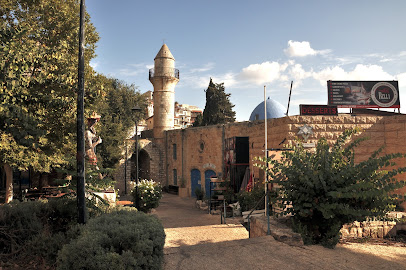
Nimrod Lookout
Discover the breathtaking beauty and historical significance of Nimrod Lookout, a serene memorial park and observatory in Rosh Pinna, Galilee.
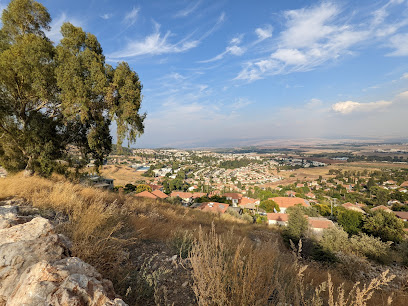
Abuhav Synagogue
Explore the Abuhav Synagogue in Safed, a stunning Orthodox synagogue rich in history and cultural significance, offering a serene spiritual experience.
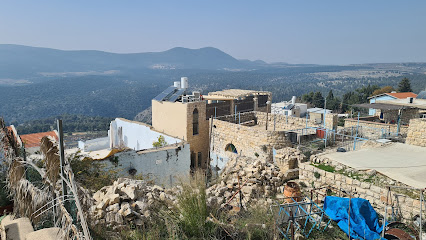
Villa Galilee
Discover tranquility at Villa Galilee, a luxurious hotel in Safed offering stunning views, exceptional spa services, and a serene escape into nature.

Ari Ashkenazi Synagogue
Explore the Ari Ashkenazi Synagogue in Safed, a historic Orthodox synagogue rich in Kabbalistic heritage and stunning architectural beauty.
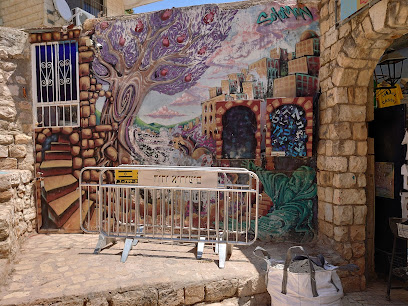
Saraya of Safed السرايا العثمانيه
Explore the Saraya of Safed: A historical landmark in Israel blending rich heritage with stunning architecture and vibrant art culture.
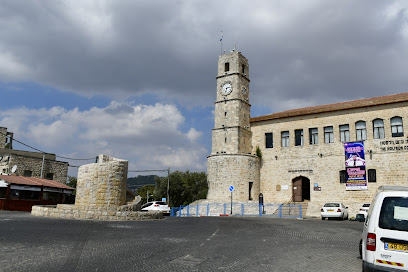
Safed Candles Ltd.
Explore the enchanting world of handcrafted candles at Safed Candles Ltd., a unique art gallery in the heart of Safed, rich in culture and creativity.
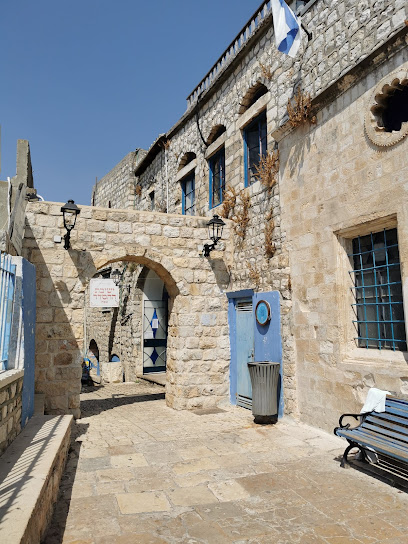
Otzar HaStam Tzfat
Discover the sacred artistry and spiritual essence of Otzar HaStam, a unique destination in the heart of Safed's mystic landscape.
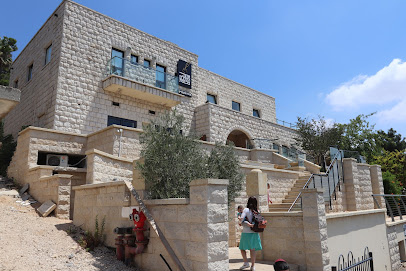
Ari Sephardic Synagogue
Explore the Ari Sephardic Synagogue in Safed, a captivating blend of spiritual heritage and artistic beauty, steeped in Jewish mystical traditions.
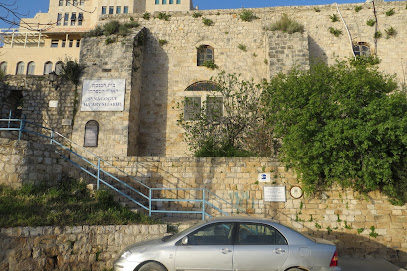
Winery safed
Discover the rich wine culture and stunning landscapes at Winery Safed, a perfect fusion of taste and tradition in the heart of Israel.
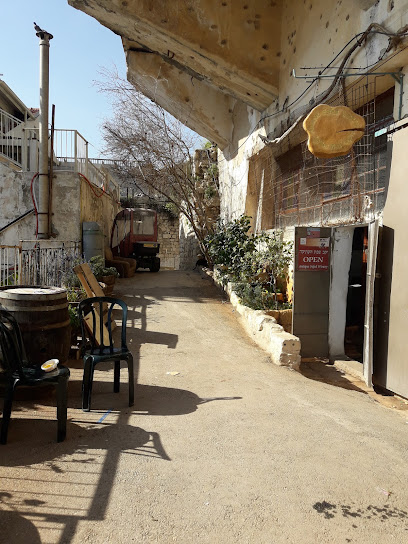
Artist Quarter Guesthouse B&B
Experience the artistic charm and serene ambiance of the Artist Quarter Guesthouse in the historic town of Safed, a perfect getaway in Israel's Galilee region.
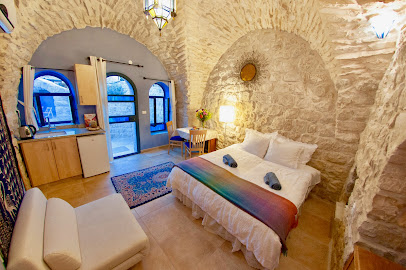
Artist Quarter Minyan HaBayit B'Tet Vav - בית הכנסת קרית האומנים הבית בטו
Discover the artistic and spiritual essence of Safed at Artist Quarter Minyan HaBayit B'Tet Vav, where creativity meets heritage in a stunning setting.
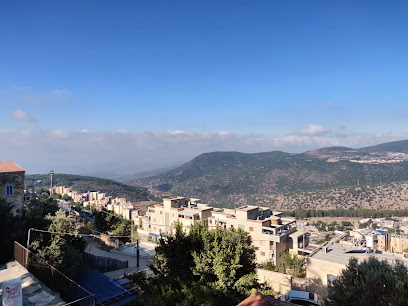
Beit Hameiri
Discover the rich history of Safed at Beit Hameiri, a captivating museum offering unique insights into the cultural heritage of the region.
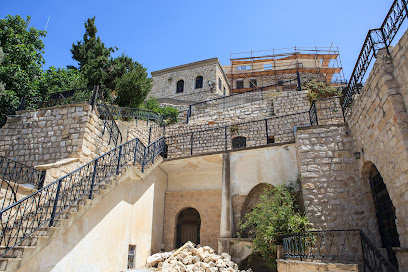
Safed Citadel
Explore the stunning Safed Citadel, a historical landmark that combines rich heritage with breathtaking views of the Galilee region.
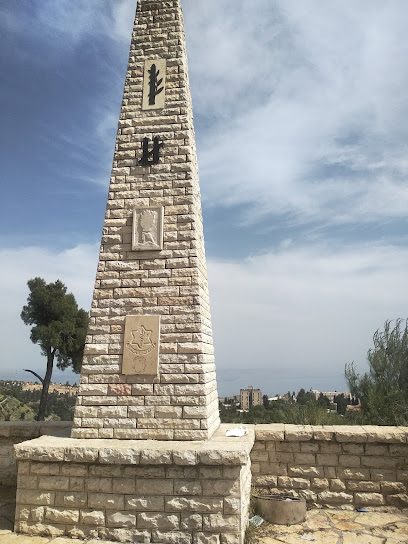
The old city inn Tzfat
Experience the charm of Tzfat at The Old City Inn, a serene hotel blending historical charm with modern comfort in the heart of this ancient city.
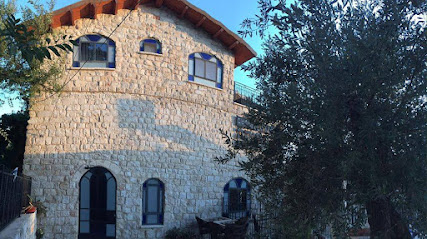
Unmissable attractions to see
Rosh HaNikra Grottoes
Discover the stunning Rosh HaNikra Grottoes, where crystal-clear waters and limestone caves create a breathtaking Mediterranean experience.
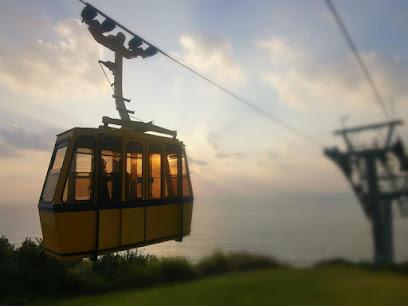
Yardenit
Explore the tranquil beauty and spiritual significance of Yardenit, a revered baptismal site on the banks of the historic Jordan River.
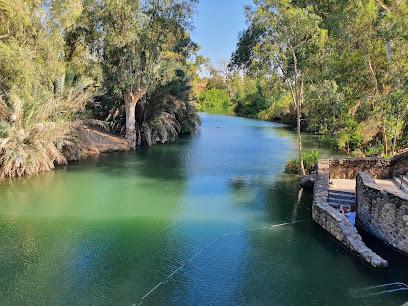
Church of the Annunciation
Explore the Church of the Annunciation in Nazareth, a stunning architectural marvel and a significant religious site steeped in history and spirituality.
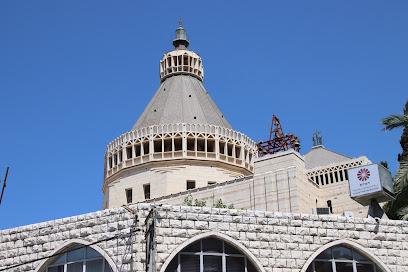
Tel Dan Nature Reserve
Discover the breathtaking landscapes and historical treasures of Tel Dan Nature Reserve, where nature and history intertwine in a stunning national park.
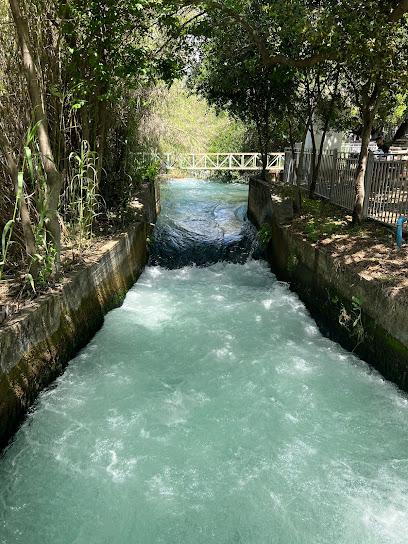
Tomb of Rabbi Meir
Discover the serene Tomb of Rabbi Meir in Tiberias, a significant pilgrimage site rich in history and spiritual significance.
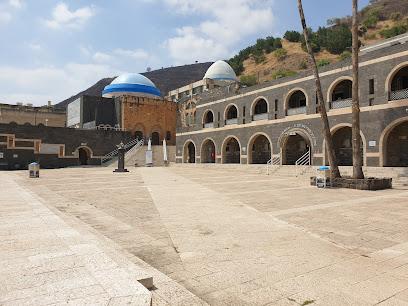
Hermon Stream Nature Reserve
Explore the lush landscapes and serene waters of Hermon Stream Nature Reserve, a stunning national park in Israel perfect for nature lovers and adventurers.
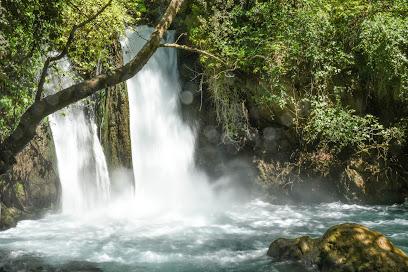
Knights' Halls, Old Akko
Explore the Knights' Halls in Old Akko, a historical marvel that showcases medieval architecture and the enchanting history of the Crusader era.
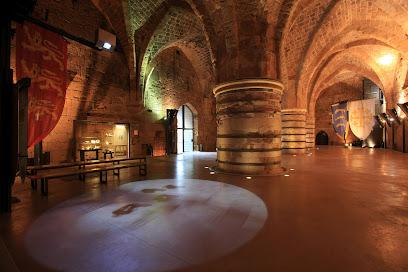
The Church of the Beatitudes
Experience the tranquil beauty and historical significance of the Church of the Beatitudes on the shores of the Sea of Galilee.
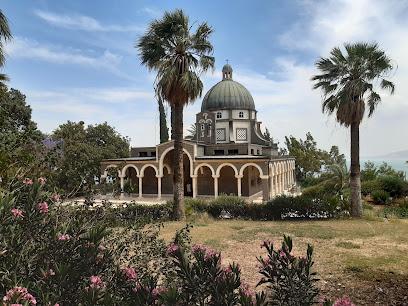
Keshet Cave
Experience the breathtaking beauty of Keshet Cave, a natural wonder in Israel, offering stunning views, hiking trails, and rich geological history.
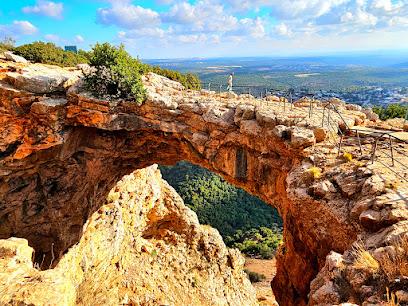
Hamat Tiberias National Park
Explore Hamat Tiberias National Park: A stunning blend of nature, history, and relaxation on the shores of the Sea of Galilee.
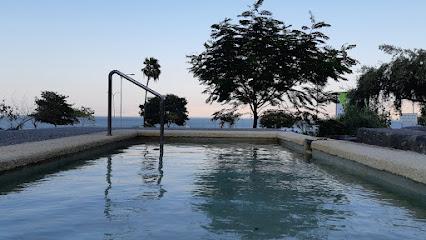
Nahal Snir Nature Preserve
Discover the serene beauty of Nahal Snir Nature Preserve, a perfect retreat for nature lovers and adventure seekers in Israel.
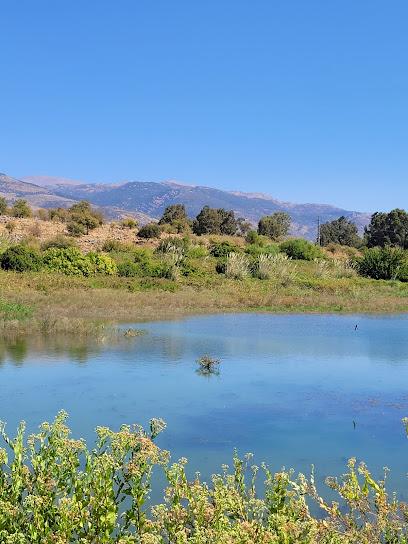
The Tomb Site of the Rambam
Explore the Tomb Site of the Rambam in Tiberias, a serene pilgrimage site that honors the legacy of the great Jewish philosopher and physician, Maimonides.
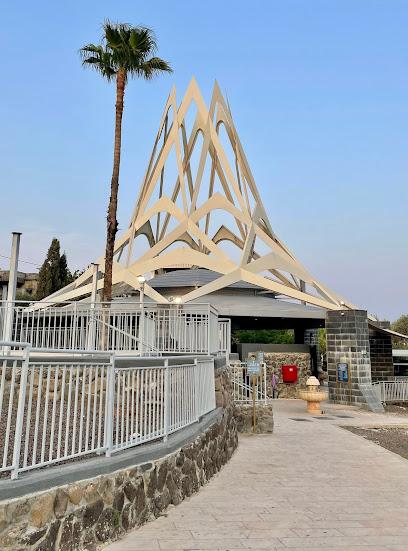
Templar's Tunnel
Delve into the Templar's Tunnel in Acre, a captivating historical landmark showcasing medieval architecture and rich Crusader history.
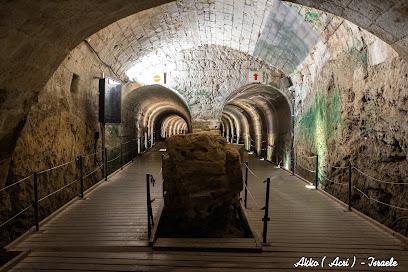
Nimrod Fortress National Park
Discover the majestic Nimrod Fortress National Park, where history and nature intertwine amidst breathtaking landscapes in northern Israel.
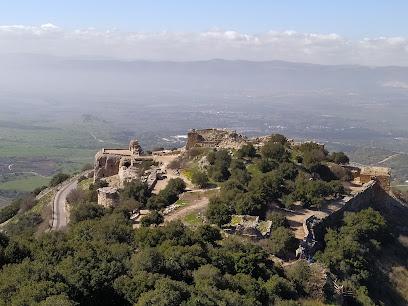
Cana Catholic Wedding Church
Explore the historic Cana Catholic Wedding Church in Kafr Kanna, a significant site of Christian faith and rich cultural heritage.
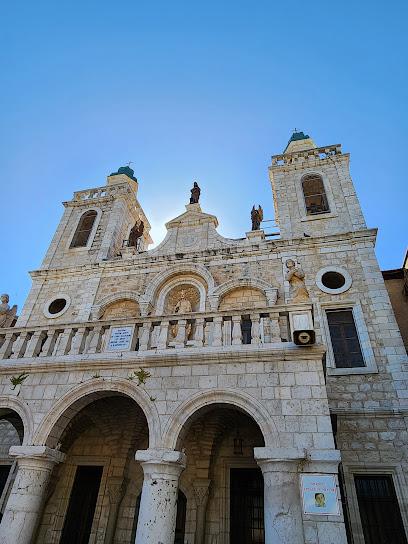
Essential places to dine
Mendi's Tzfat
Experience the vibrant flavors of kosher cuisine at Mendi's Tzfat, where family gatherings meet culinary excellence in beautiful Safed.
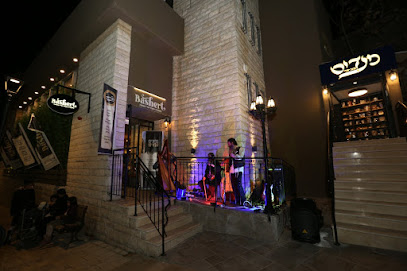
Cafe Monitin
Discover Cafe Monitin in Safed – where traditional Israeli cuisine meets Italian flair in a cozy setting perfect for families.
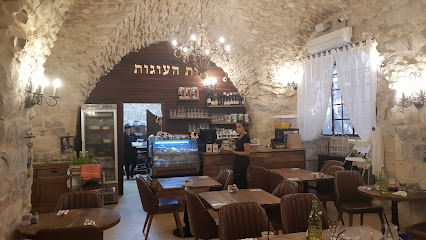
סעודה בגן עדן
Experience exquisite local cuisine at סעודה בגן עדן in Safed – where flavors meet breathtaking views.
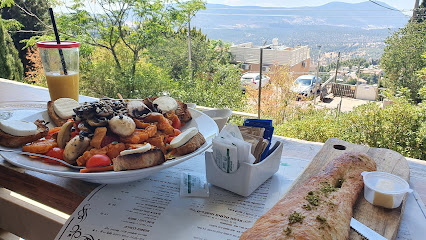
מסעדת בית העוגות
Discover unique flavors at מסעדת בית העוגות in Safed - a perfect blend of local cuisine and cozy ambiance.
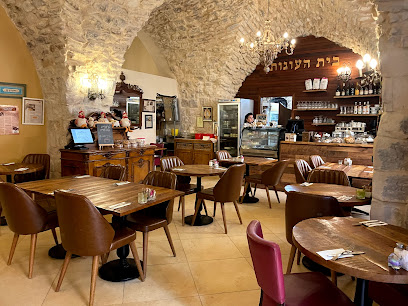
חומוס אליהו צפת
Experience authentic Israeli flavors at Hummus Eliyahu in Safed - a must-visit culinary gem known for its rich hummus and welcoming atmosphere.
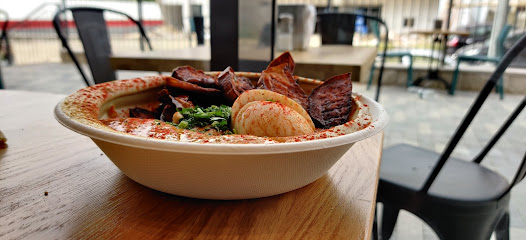
מסעדת חומוס אבו יובי
Experience authentic kosher cuisine at Abu Yuvi Restaurant in Safed – where every dish tells a story of tradition and flavor.
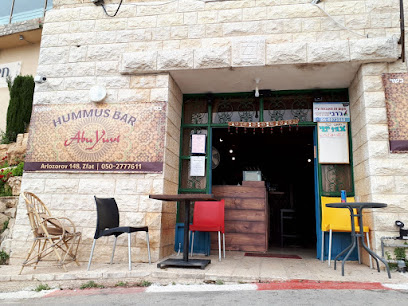
Café Bagdad
Discover Café Bagdad in Safed: A charming café serving authentic Israeli cuisine amidst breathtaking landscapes.
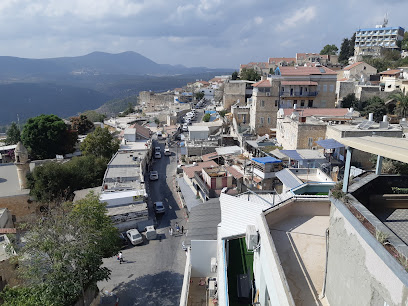
Wood Grill Restaurant מסעדת גריל עץ
Experience authentic wood-fired cuisine at Wood Grill Restaurant in Safed – where every bite tells a story.
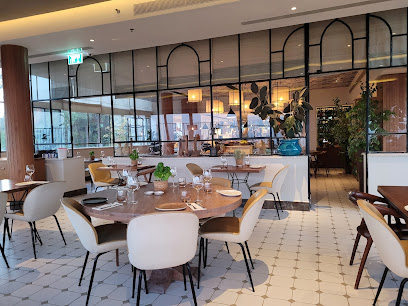
הפלאפל של לאלו| LALO's Falafel
Experience authentic Israeli flavors at LALO's Falafel in Safed – where deliciousness meets affordability in every bite.
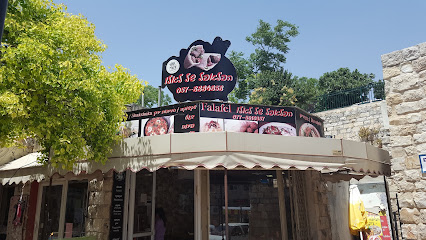
בית הפרגית צפת
Experience authentic Israeli cuisine at בית הפרגית צפת in Safed - where tradition meets flavor in every bite.
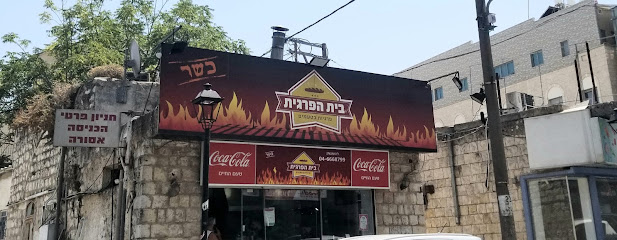
השטעטל
Experience authentic Israeli cuisine at הַשְׁטֵעַטֶל in Safed—where tradition meets flavor in a charming setting.
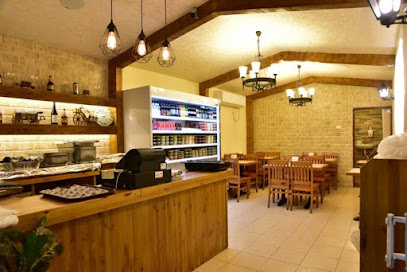
Shiitake Plate
Experience the exquisite fusion of Asian flavors at Shiitake Plate in Safed - A haven for noodle and sushi lovers!
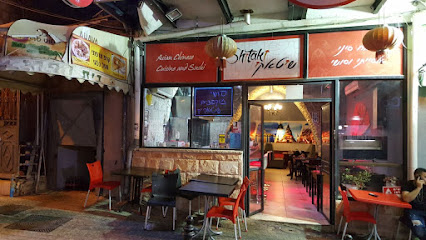
Pizza Safed
Experience the best pizza in Safed with fresh ingredients and a cozy atmosphere that captures the essence of this historic city.
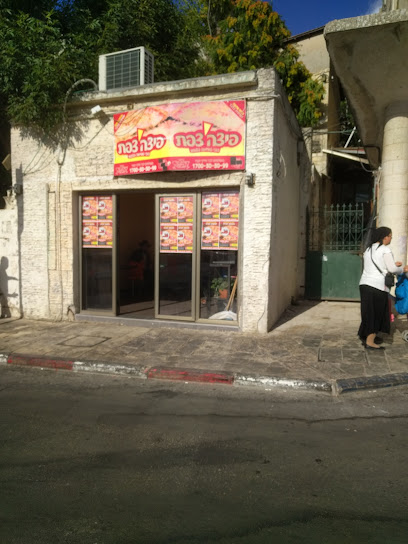
Lahuhe original - Yemenite food bar
Discover the rich and authentic flavors of Yemenite cuisine at Lahuhe Original in Safed – a culinary journey you won't want to miss.
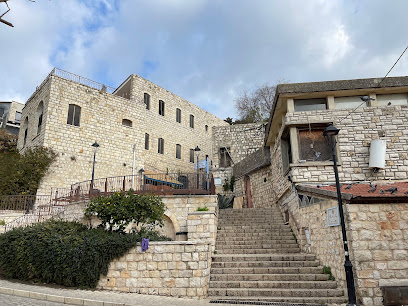
Elements Cafe Gluten-Free and Vegan, Organic
Discover healthy dining at Elements Cafe in Safed - where gluten-free meets global flavors in an organic oasis.
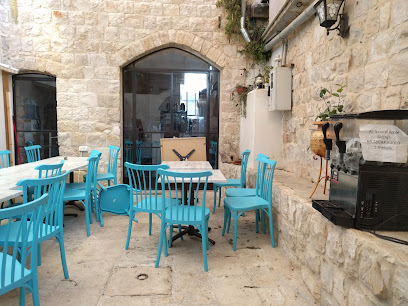
Markets, malls and hidden boutiques
Merkaz Tslil Shopping Center
Explore the vibrant Merkaz Tslil Shopping Center in Safed for a unique blend of local culture and contemporary shopping experiences.
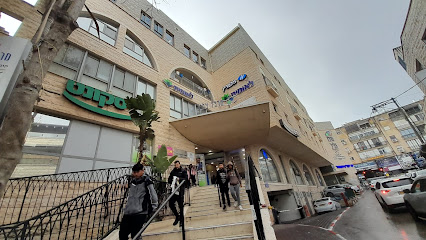
Art Gift
Explore Art Gift in Safed for unique souvenirs, custom embroidery, and a touch of Israeli creativity in every purchase.
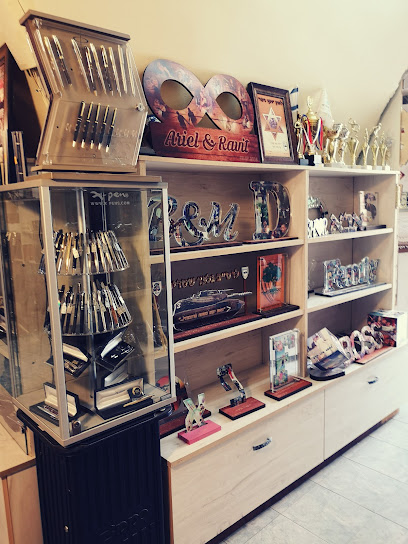
מתנה יהודית
Explore unique gifts, books, and toys at מתנה יהודית in Safed, where local artistry meets delightful shopping.
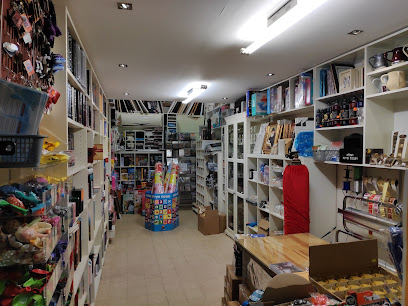
Tzfat
Discover the mystical charm of Tzfat, a historic city in Israel known for its rich Kabbalistic heritage, art galleries, and stunning mountain views.
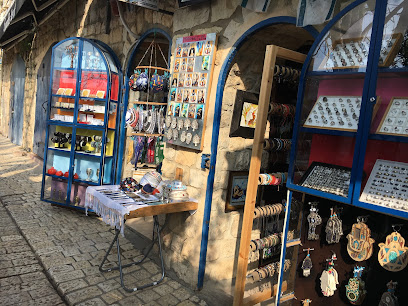
אפליקציה צפת -סמארטפונים-טאבלטים-מעבדת תיקונים במקום-שעונים חכמים-מחשבים-גיימינג-מסכי טלויזיה תיקון סמסונג-תיקון אייפון
Discover the Smart Shop in Safed for the latest in electronics, gaming gear, and exceptional customer service, making your tech shopping experience truly memorable.
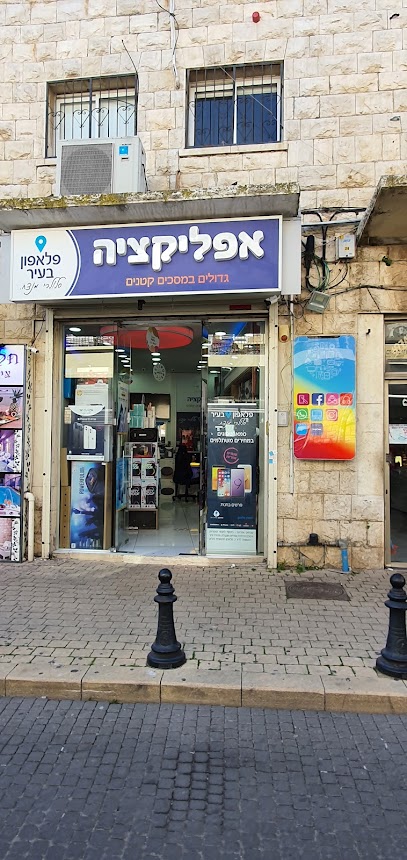
מילים טובות- ליטל סיקוראל
Discover unique handcrafted gifts that capture the essence of local culture at Milim Tovot, your go-to gift shop in the heart of the region.
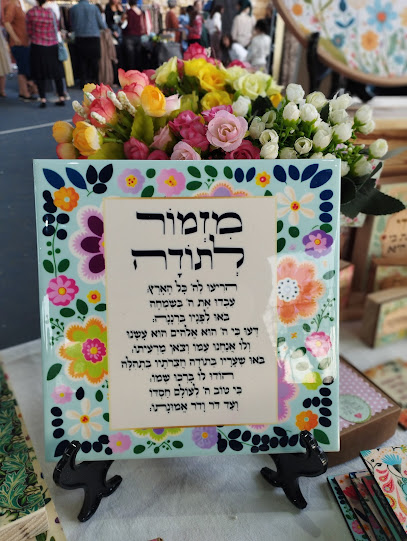
WiName - רוקמים באהבה
Explore WiName, a unique gift shop offering handcrafted treasures that capture the essence of local artistry and culture.

Papaya
Discover unique styles and quality craftsmanship at Papaya, the premier shoe store in the heart of Safed, perfect for every traveler.
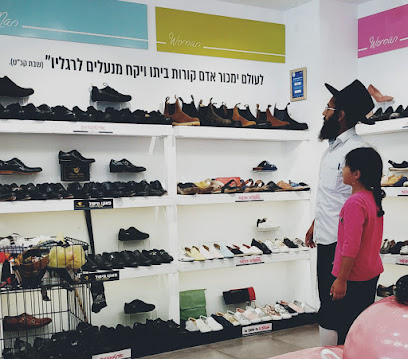
Safed Craft Pottery
Discover the rich heritage of pottery at Safed Craft Pottery, where artistry meets tradition in the heart of Safed.
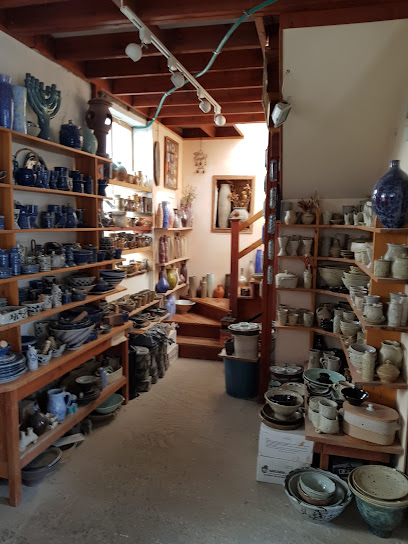
מכולת
Discover the local flavors of Safed at this charming grocery store, offering fresh produce and unique Israeli snacks.
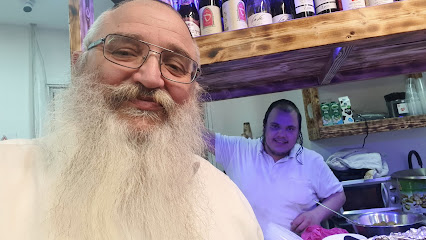
בית החצאית - בננות - עולם הגרב
Explore unique fashion and local styles at בית החצאית - בננות - עולם הגרב in Safed, where every piece reflects the city's rich cultural heritage.
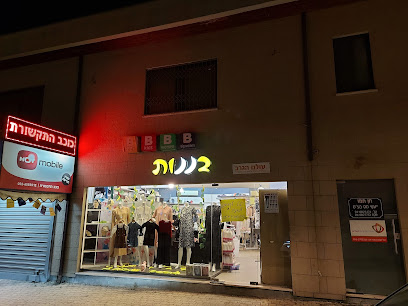
ג'ודיס JUDY'S
Explore Judy's Dress Store in Safed for an exquisite selection of fashionable dresses that blend elegance and modern trends.
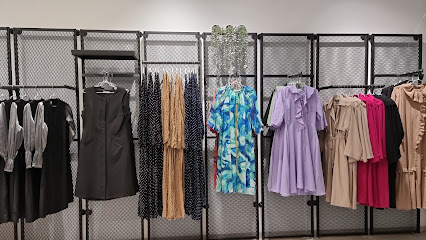
קמיליון
Explore the vibrant styles at קמיליון, a premier clothing store in Safed, offering unique fashion that reflects the local culture.
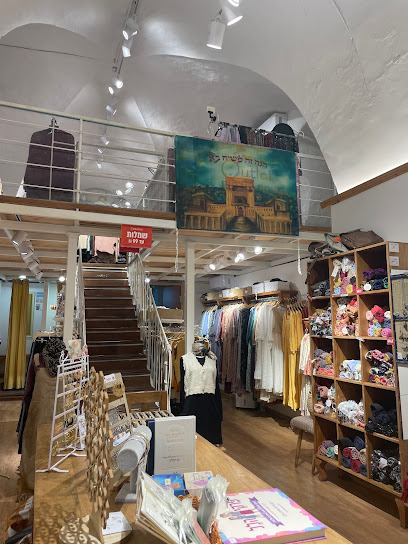
סיטי שופ
Discover unique home goods and local artisan creations at City Shop in Safed, a must-visit destination for every traveler.
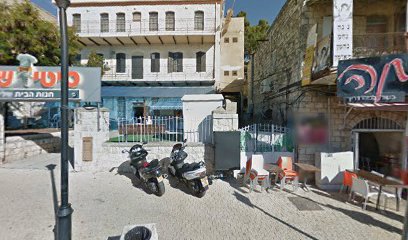
David and Jonathan wood art
Explore the artistic charm of David and Jonathan Wood Art in Safed, a perfect spot for unique handcrafted gifts and cultural treasures.
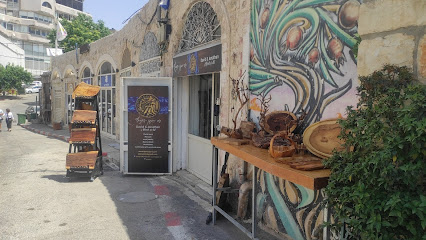
Essential bars & hidden hideouts
Mendi's Tzfat
Discover the flavors of Mendi's Tzfat, a family-friendly kosher restaurant in the historic town of Safed, where culinary excellence meets rich tradition.
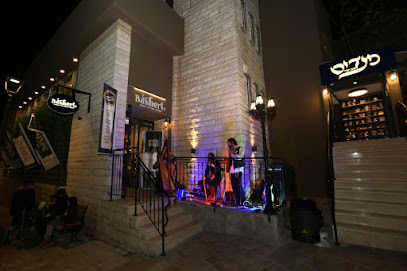
Cafe Monitin
Discover the flavors of Safed at Cafe Monitin, where Kosher dining meets eclectic cuisine in a warm and inviting atmosphere.
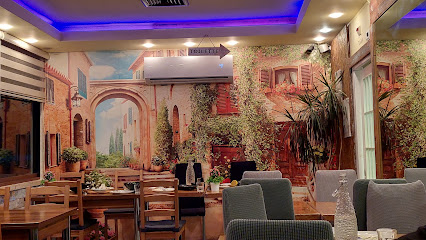
Tangerine Bar
Discover Rosh Pinna's Tangerine Bar, where vibrant tapas and cocktails meet stunning views for a memorable culinary experience.
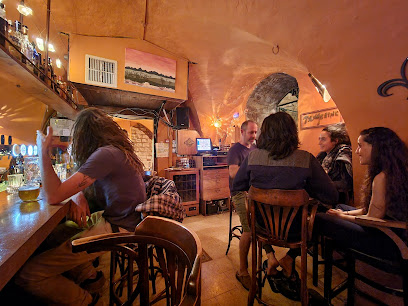
Café Bagdad
Discover the flavors of Israel at Café Bagdad in Safed, where cozy ambiance meets delightful cuisine in the heart of this historic city.
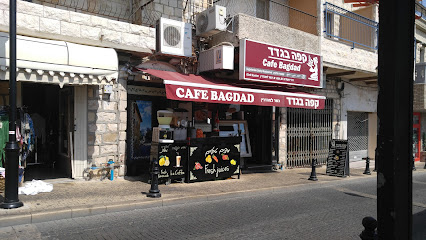
Lahuhe original - Yemenite food bar
Discover the rich flavors of Yemenite cuisine at Lahuhe Original, a charming restaurant in Safed offering authentic dishes and warm hospitality.
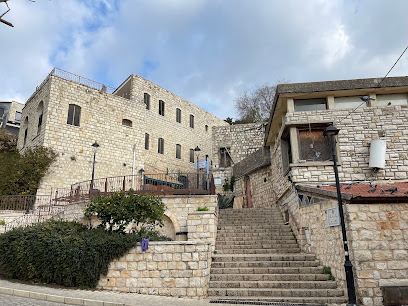
Elements Cafe Gluten-Free and Vegan, Organic
Discover the vibrant flavors of gluten-free and vegan cuisine at Elements Cafe in the heart of Safed, perfect for health-conscious food lovers.
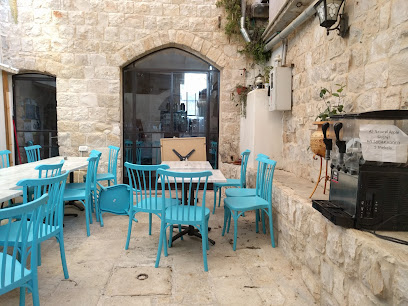
זושא בר
Discover the vibrant culinary scene at Zusha Bar in Safed, where traditional flavors meet modern dining in a lively atmosphere.
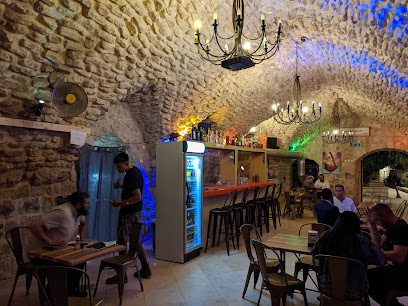
Pub Amiad
Discover the vibrant atmosphere of Pub Amiad, a local gem offering delicious food and drinks in the heart of Ami'ad.
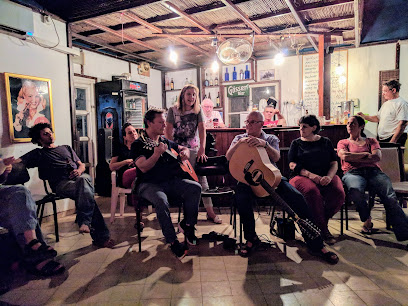
Tree of Life Cafe
Experience the taste of tranquility at Tree of Life Cafe, where fresh vegetarian cuisine meets the enchanting atmosphere of Safed.
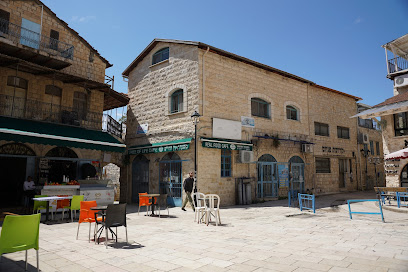
יקב אבוהב
Experience the enchanting ambiance of Yekev Abuhav in Safed, where local wines and stunning views create the perfect getaway for tourists.
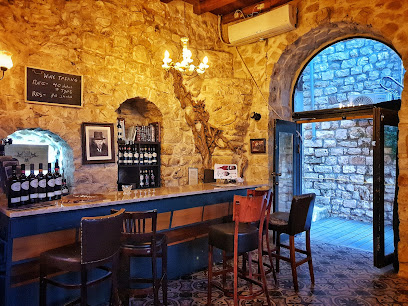
Muza wine bar - מוזה בר יין
Experience the allure of Safed at Muza Wine Bar, where exquisite wines and delightful small plates come together in a cozy setting.
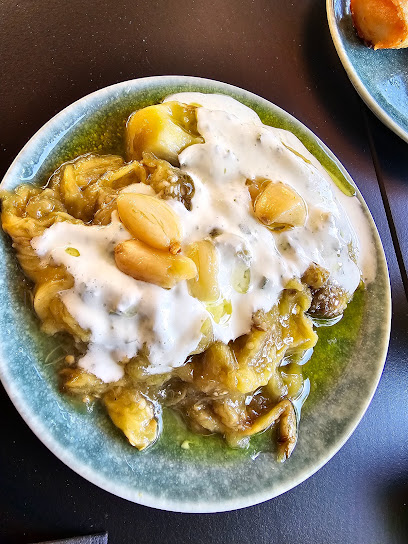
Bella Artisan pizza bread bar & kitchen
Experience the best artisanal pizza and fresh bread in Safed at Bella Artisan Pizza Bread Bar & Kitchen, where taste meets tradition.
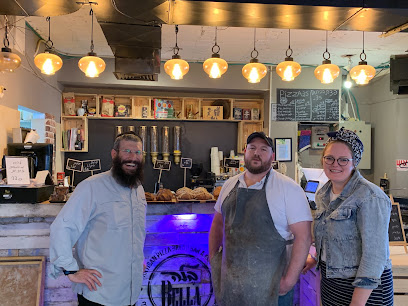
אנטריקוט בר
Experience the lively atmosphere of Antrikot Bar in Safed, where exquisite drinks and great company await in this enchanting city.
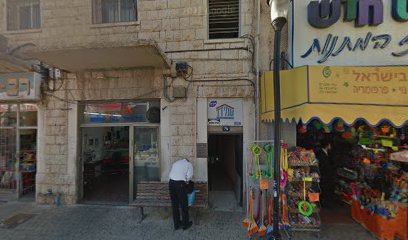
Shot bar rosh pina
Discover the vibrant nightlife of Rosh Pinna at Shot Bar, where creative cocktails and a lively atmosphere await.
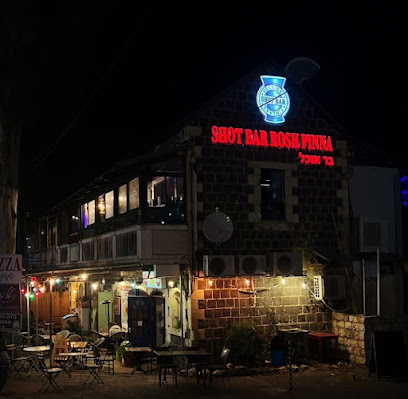
Local Phrases
-
- Helloשָׁלוֹם
[Shalom] - Goodbyeלְהֵיתָרֵע
[Lehitraot] - Yesכֵּן
[Ken] - Noלֹא
[Lo] - Please/You're welcomeבבקשה
[Bevakasha] - Thank youתודה
[Toda] - Excuse me/Sorryסְלִיחָה
[Slicha] - How are you?אֵיך אתה?
[Eich Ata?] - Fine. And you?טוב. ואתה?
[Tov. Ve'ata?] - Do you speak English?האם אתה מדבר אנגלית?
[Ha'Im Ata Medaber Anglit?] - I don't understandאני לא מבין
[Ani Lo Mevin]
- Helloשָׁלוֹם
-
- I'd like to see the menu, pleaseאני רוצה לראות את התפריט, בבקשה
[Ani Rotze Lir'ot et Ha'ta'am, Bevakasha] - I don't eat meatאני לא אוכל בשר
[Ani Lo Ochel Basar] - Cheers!לחיים!
[Lechayim!] - I would like to pay, pleaseאני רוצה לשלם, בבקשה
[Ani Rotze Leshalem, Bevakasha]
- I'd like to see the menu, pleaseאני רוצה לראות את התפריט, בבקשה
-
- Help!עזור!
[Ezor!] - Go away!לך לך!
[Lech Lech!] - Call the Police!קרא למשטרה!
[Kra La'mishtara!] - Call a doctor!קרא לרופא!
[Kra La'rofe!] - I'm lostאני אבוד
[Ani Avud] - I'm illאני חולה
[Ani Choleh]
- Help!עזור!
-
- I'd like to buy...אני רוצה לקנות...
[Ani Rotze Liknot...] - I'm just lookingאני רק מסתכל
[Ani Rak Mestakel] - How much is it?כמה זה עולה?
[Kama Ze Oleh?] - That's too expensiveזה יקר מדי
[Ze Yakar M'dai] - Can you lower the price?אפשר להוריד את המחיר?
[Efshar Leh'orid et Ha'machir?]
- I'd like to buy...אני רוצה לקנות...
-
- What time is it?מה השעה?
[Ma Ha'sha'a?] - It's one o'clockהשעה אחת
[Ha'sha'a Echat] - Half past (10)חצי (עשר)
[Chatzi (Esre)] - Morningבוקר
[Boker] - Afternoonצהריים
[Tzohorayim] - Eveningערב
[Erev] - Yesterdayאתמול
[Etmol] - Todayהיום
[Ha'yom] - Tomorrowמחר
[Mahar] - 1אחד
[Echad] - 2שתיים
[Shtayim] - 3שלוש
[Shalosh] - 4ארבע
[Arba] - 5חמש
[Chamesh] - 6שש
[Shesh] - 7שבע
[Sheva] - 8שמונה
[Shmone] - 9תשע
[Tisha] - 10עשר
[Esre]
- What time is it?מה השעה?
-
- Where's a/the...?איפה נמצא/ת...?
[Eifo Nimtza/Ta...?] - What's the address?מה הכתובת?
[Ma Ha'ktovet?] - Can you show me (on the map)?אתה יכול להראות לי (על המפה)?
[Ata Yachol Leh'arot Li (Al Ha'mapa)?] - When's the next (bus)?מתי האוטובוס הבא?
[Matay Ha'otobus Ha'ba?] - A ticket (to ....)כרטיס (ל....)
[Kartis (Le....)]
- Where's a/the...?איפה נמצא/ת...?
History of Safed
-
Safed, known as Tzfat in Hebrew, is one of the oldest cities in Israel with roots tracing back to biblical times. Archaeological evidence suggests that the area was inhabited during the Canaanite period. Its strategic location atop a mountain made it a significant lookout point and a place of refuge throughout ancient history.
-
In the 16th century, Safed experienced a golden age, becoming a major center of Jewish learning and mysticism. Following the expulsion of Jews from Spain in 1492, many Jewish scholars and Kabbalists settled in Safed. This period saw the creation of the Shulchan Aruch, a codification of Jewish law by Rabbi Joseph Caro, and the flourishing of Kabbalah, led by figures such as Isaac Luria.
-
During the Ottoman rule from the early 16th century, Safed continued to thrive as a center of commerce and spirituality. The city was famous for its textile industry, producing fine woolen goods that were exported throughout the Ottoman Empire and beyond. Safed's synagogues and study halls remained vibrant centers of Jewish life.
-
Safed faced numerous challenges, including earthquakes in the 18th and 19th centuries that devastated much of the city. However, each time, the resilient community rebuilt. The 1837 earthquake was particularly catastrophic, resulting in significant loss of life and property. Yet, Safed managed to recover and continued to attract Jewish immigrants.
-
During the British Mandate (1917-1948), Safed became a focal point of tension between Jewish and Arab communities. The 1929 Safed riots were a tragic event in which many Jews were killed and their homes destroyed. Despite the violence, Safed's Jewish community continued to grow, driven by waves of immigration.
-
In May 1948, during the Arab-Israeli War, Safed was a battleground. The capture of Safed by Jewish forces was crucial for the control of the Galilee region. Following intense fighting, the city fell to the Haganah, leading to the departure of the majority of its Arab residents. This victory helped secure the northern front for the newly established State of Israel.
-
Today, Safed is known for its vibrant arts scene and as a hub for Jewish mysticism. The city's narrow cobblestone streets are lined with galleries, synagogues, and historic buildings. The annual Klezmer Festival, celebrating Jewish music, draws visitors from around the world. Safed remains a spiritual and cultural beacon, attracting artists, scholars, and tourists alike.
Safed Essentials
-
Safed is located in northern Israel, roughly 40 kilometers from the Sea of Galilee. The nearest international airport is Ben Gurion Airport in Tel Aviv, approximately 150 kilometers away. From the airport, you can take a taxi or shuttle bus directly to Safed. Alternatively, you can take a train to Akko or Karmiel and then a bus to Safed. The journey from Tel Aviv typically takes around 2 to 3 hours by road.
-
Safed is a small city with many attractions within walking distance. For longer trips, local taxis are readily available and relatively inexpensive. Public buses operate within the city and connect to nearby towns. Renting a car is also a convenient option for exploring the surrounding areas, though be aware that parking in the city center can be challenging.
-
The official currency in Israel is the New Israeli Shekel (NIS). Credit cards are widely accepted in hotels, restaurants, and shops in Safed. However, it is advisable to carry some cash for smaller establishments and markets. ATMs are available throughout the city, and you can exchange money at local banks and currency exchange offices.
-
Safed is generally a safe destination for tourists. However, it is advisable to take standard precautions. Avoid walking alone at night in unfamiliar areas and keep an eye on your belongings in crowded places. While Safed does not have specific high-crime areas targeting tourists, staying vigilant and aware of your surroundings is always a good practice.
-
In case of emergency, dial 100 for police assistance, 101 for medical emergencies, and 102 for fire services. Safed has a local police station and medical facilities. It is recommended to have travel insurance that covers medical emergencies. Pharmacies are available in the city for minor health issues and over-the-counter medications.
-
Fashion: Do dress modestly, especially when visiting religious sites. Avoid wearing revealing clothing. Religion: Do respect local customs and traditions. Men should cover their heads when entering synagogues, while women should dress modestly. Public Transport: Do be respectful and give up your seat to elderly passengers. Don't eat or drink on public transport. Greetings: Do greet people with a friendly 'Shalom' and a handshake. Eating & Drinking: Do try local delicacies and accept food offerings graciously. Don't refuse hospitality, as it is considered impolite.
-
To experience Safed like a local, visit the local markets and art galleries in the Old City. Engage with locals, as they are often friendly and willing to share stories about the city's history and culture. Don't miss the Kabbalah Center and ancient synagogues. For a unique experience, attend a live Klezmer music performance, which Safed is famous for. Walking through the narrow, cobblestone streets of the Artists' Quarter will also provide an authentic feel of the city's vibrant artistic community.
Trending Landmark in Safed
-
HaMetsuda Garden
-
Nimrod Lookout
-
Abuhav Synagogue
-
Villa Galilee
-
Ari Ashkenazi Synagogue
-
Saraya of Safed السرايا العثمانيه
-
Safed Candles Ltd.
-
Otzar HaStam Tzfat
-
Ari Sephardic Synagogue
-
Winery safed
-
Artist Quarter Guesthouse B&B
-
Artist Quarter Minyan HaBayit B'Tet Vav - בית הכנסת קרית האומנים הבית בטו
-
Beit Hameiri
-
Safed Citadel
-
The old city inn Tzfat
Nearby Cities to Safed
-
Things To Do in Tiberias
-
Things To Do in Nazareth
-
Things To Do in Nahariya
-
Things To Do in Umm Qais
-
Things To Do in Rosh HaNikra
-
Things To Do in Acre
-
Things To Do in Akko
-
Things To Do in Tyre
-
Things To Do in Marjayoun
-
Things To Do in Haifa
-
Things To Do in Beit She'an
-
Things To Do in Irbid
-
Things To Do in Sidon
-
Things To Do in Zikhron Ya'akov
-
Things To Do in Rashaya










